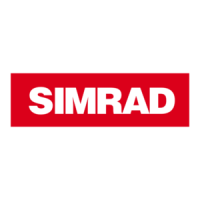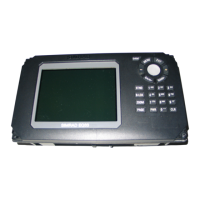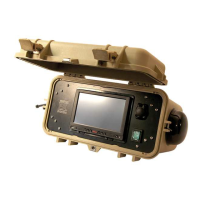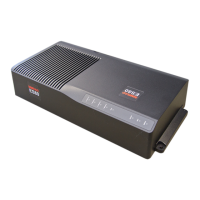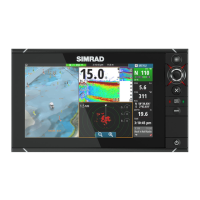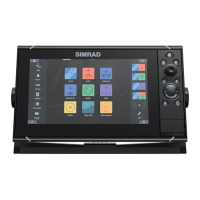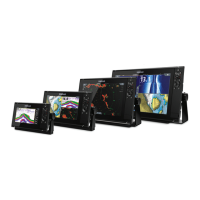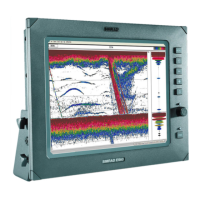EQ42/50/52 Glossary of terms Appendix A
72
Transducer – the transducer serves as the acoustic “loudspeaker” and
“microphone” to send and receive the signals through the water.
Transducers are most often made from ceramic elements carefully built into a
robust housing. The ceramic elements change shape when a voltage is placed
across them (when the EQXX transmits a signal), and they also generate a
voltage when they encounter sound waves (as when the EQXX receives an echo).
Transmit power – should normally be left on AUTOmatic. The modes available
are: AUTO, 1000W, 500W, 100W and 10W.
TVG – Time Varying Gain – is a control that allows the EQXX to make correc-
tions for most of the losses and absorption that occurs as sound energy passes
through sea water.
There are three settings to choose from, Normal, Special and OFF.
The setting “Normal (20 log R) is for general fish finding at depths down to 50m
(150’) and it will also give a uniform bottom echo presentation at shallow, mid
and deep water.
The setting “Special (40 log R) will adjust the TVG to show the same echo
strength for a given size fish at varying depths.
The OFF position is used for net sounders. In OFF position the TVG is inactive
which means that the sounder operates with a fixed gain between each transmitter
pulse. Auto range is switched to manual.
VRM – Variable Range Marker – this refers to a horizontal black line shown on
the display screen. The user can measure the range to targets shown on the
display screen by use of the VRM. The depth to the VRM can be seen in the top
left side of the screen for approximately 5 seconds after pressing the
[VRM]
key.
White line – is a control which places a white/black line at the displayed sea
floor and blanks out 4 pixels just below the line. The purpose of this is to help the
user detect targets, such as fish, which are very close to the sea floor and whose
echoes tend to merge with those of the sea floor itself.
ZOOM – see Expansion.
